If you’re an individual who wants to be recognised as an authority in your field, and want your expertise to be sought after and rewarded*, what can you do?
Obviously, you need to get yourself heard and seen. That’s through blogs and articles, seminars, keynote speaking, online videos, white papers and books. One channel that is gaining traction and increasing in popularity amongst brand leaders is podcasting.
Endless examples abound of executive consultants, business coaches, mentors, professional service providers and thought leaders who are speaking directly with their own tribes and expanding their reach through regular audio content.
I asked six thought leaders why they have embraced podcasting to engage more deeply with their audiences and to help promote their personal brand. These are their answers.
Zoe Routh
http://www.zoerouth.com
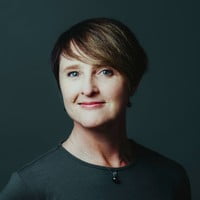
“My podcast is named very creatively Zoe Routh Leadership Podcast. The reason I started it is I wanted to expand my audience so I wanted positioning and I wanted visibility and … I wanted to focus on boundless leadership. So, I’ve narrowed down my topic to really think about that.
The challenges were getting it set up. All the tech stuff was completely new to me so I had to do lots of research in a very crammed schedule to try and work out what pieces of equipment I needed, how to get it set up, how to get it linked up to iTunes.
I guess probably the second challenge is all about content creation because I post weekly. That’s a lot of content to generate.”
Travis Bell
The Bucket List Guy
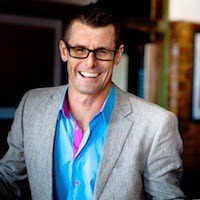
“Why did I do a podcast? To get access. To provide a platform so I can meet cool people who are doing stuff, who have networks bigger than mine – I call it database climbing, to reach these sort of people. And because I’m generally a very curious person and I love discovering ‘how did someone do that?’. So, for me, they’re business people that I admire, role models, authors, other speakers who are champions of causes.”
Cat LeBlanc
http://catleblanc.com
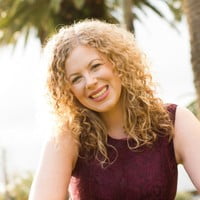
“My podcast is called Your Business Your Rules and it focuses on building a business and a lifestyle on your own terms. I started it because I knew that my written content could only go so far in terms of engaging my audience. People really got a lot out of my blogs but it will be rare that they get really excited about them. I wanted to find a way of creating a deeper connection with my people and be able to be more personal as well. I knew I had great content but the writing was too flat and also video didn’t feel right either.
I was also hoping for a side benefit of reaching a broader audience as I expected some people would listen to my podcast but not necessarily be on my email list. Potential clients can binge-listen and really get a feel for who I am and what I stand for so I’m getting a lot more hands-off sales because of it.
I do think though it creates a very high level of engagement, at least equal if not higher than video because you’re hanging out with your listener one-on-one and they develop a relationship with you in their everyday life.”
Mel Kettle
http://melkettle.com
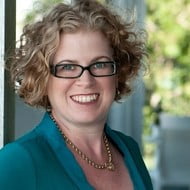
“A lot of the feedback that I had from the people who listened to my podcast, people would ring me and say I feel like I’ve just been in your living room listening in to a conversation you had with a good friend.
And so that personal touch is something that I really love because it helps people get to know you and like you a lot more quickly than other forms of communication. And you know, people do business with people they know, like and trust. So, if you can build that relationship quickly through a podcast, then you’ve got much more opportunity to do things from a business perspective with them.”
Sally Foley
http://www.sallyfoleylewis.com
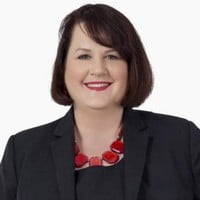
“I thought it would help me to be more visible; there’d be more around branding; it’s another way, another element of SEO; people would see me here there and everywhere if I also had a podcast in conjunction with everything else that I do.
The other reason why I started the People and Management podcast was that it was an opportunity to have conversations with people who are not in my area of expertise but I knew that they could help bridge a gap and educate, have an insight different to mine.
Make sure that you’re clear about what it is you want to achieve. Make sure you know the style you want your show to be, and who is your listener? Who do you actually want to reach when it comes to sharing a message?”
Andrew Ford
https://www.socialstar.com.au

“Podcasting is more difficult than writing blogs. However, blog writing is becoming harder and harder to distribute and it’s just not as engaging.
Audio, I believe, is the most engaging format. Better than video. Because you get the length of time – you know, someone’s on a car trip or they’re commuting on a train and they’re listening to you on their headphones – so you’re directly speaking to them. And they’re getting to know your voice, and the nuances in your voice. And they just can’t get that in a blog.
A blog is about the content but it’s very hard to get personality in there. But when you’re doing a podcast with someone, you’re asking questions, you’re laughing and just things you pick up on, people are very intuitive – they don’t know they’re doing it but they’re forming an opinion on whether they like you or trust you.
The two things essential for a sale is credibility and likeability which equals trust. So, if you can achieve that with audio prior to a client coming in and sitting with you, they’ve already got trust. The next thing is, is the product a fit? Whereas a lot of people try to build trust in a sales meeting, you can’t build trust and sell at the same time. You have to build trust first and then move onto a sales process.”
For the full responses, listen to episode 7, season 2 of BE Podcasting – Engage Your Audience.
* A definition from Forbes magazine:
“A thought leader is an individual or firm that is recognized as an authority in a specialized field and whose expertise is sought and often rewarded.”